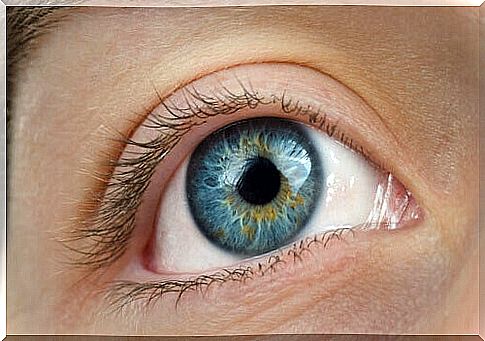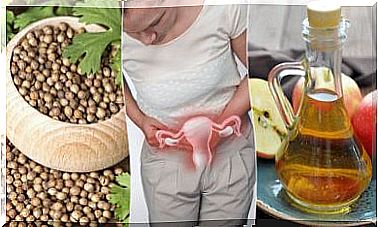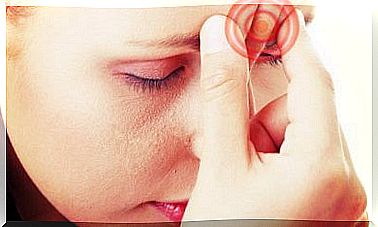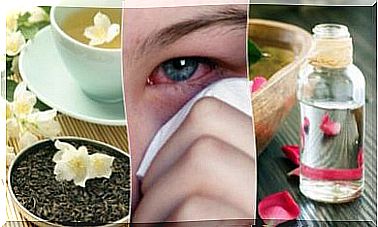7 Little-Known Health Benefits Of Dandelion
Although current evidence remains limited, there are studies that suggest dandelion to help promote health in several ways. Discover its main benefits.

Dandelion, also known as bitter chicory, is a plant that is generally considered a “weed.” However, dandelion is valued in alternative medicine for its multiple nutritional properties and health benefits.
It grows easily spontaneously in gardens, paths and meadows. But many gardeners grow it on purpose for use in the preparation of natural remedies.
Most remedies are infusions, which, when consumed with some regularity, help the body to function properly. There are even those who use it as an adjuvant to soothe the symptoms of certain diseases.
However, in the latter case, its consumption should be monitored by a doctor. Especially if a pharmacological treatment has already been adopted. It should be remembered that plants can have interactions with drugs as well as side effects.
If the professional agrees, this plant can be taken as a supplement to conventional treatment. Now let’s take a look at what the science says, and what are its most remarkable benefits.
What does science say about dandelion?
To date, research has revealed that dandelion is a plant whose components ( sesquiterpenlactones, phenylpropanoids, saponins, triterpenoids, and polysaccharides) have a primarily diuretic and digestive effect that helps improve health. In turn, this plant also has appetite stimulating and inflammation-reducing effects.
On the other hand, it should be noted that dandelion is not only used as an alternative remedy for humans but also for animals. Especially in dogs, felines, rabbits, rodents, reptiles and small birds.

Benefits of consuming dandelion
Dandelion is a medicinal plant known in many parts of the world. According to a Cambridge University Press publication, it is a source of various nutrients and biologically active substances. In addition, its roots and leaves contain vitamins (complex A, K, C and B), minerals (calcium, magnesium, potassium, zinc and iron), micronutrients, fibers, lecithin and choline.
This same study underlines that the plant also has immunomodulatory properties, digestive stimulants, prebiotics, insulinostimulants, anti-inflammatory, anti-angiogenic, antineoplastic, and emollient. Nevertheless, given the paucity and limitation of the studies performed, more convincing evidence is needed to verify its benefits, safe dosages and efficacy.
At the moment, dandelion is used in complementary medicine in moderate amounts. Whether in the form of capsules, extracts or infusions. Here are more details about its advantages:
1. It fights water retention
Due to its diuretic and anti-inflammatory properties, dandelion is used as a food supplement to stimulate the elimination of waste through urine, and in general all liquids retained in the body. Its natural active ingredients improve kidney function and help eliminate excess fluid through good urine production.
To do this, it can be consumed as an infusion, 2 or 3 times a day.
2. It improves liver function
Dandelion root is a well-known protector of the liver, not only because it helps optimize its function, but also because it prevents inflammatory problems and regulates the flow of bile.
A study published in Molecules in 2017 proved that the polysaccharides found in dandelion may be beneficial for liver function. To obtain these effects, it should be consumed at least 3 times a week, prepared as an infusion.
3. Dandelion helps digestion

This herb has a mild laxative effect that helps improve bowel movement for optimal elimination, according to a study published in Neurogastroenterology and Motility .
In addition, It also contains high amounts of dietary fiber and antioxidants. Together they stimulate the functions of the gastrointestinal tract to prevent slow digestion.
So, it is recommended in case of indigestion and gas, as it helps neutralize the acidic pH without affecting the activity of healthy bacteria.
4. It fights anemia
Due to its high supply of minerals like iron, magnesium and calcium, this healthy herb is also a good supplement to speed up recovery after anemia or episodes of severe fatigue.
Although we need more evidence, research published in Advances in Hematology proves that dandelion promotes the formation of red and white blood cells, which among other things helps strengthen the immune system.
5. Dandelion protects visual health

Due to its content of essential nutrients, dandelion is one of the healthy plants that can help protect eye health.
In particular, it contains lutein and zeaxanthin. These are two components that reduce the risk of cataracts, macular degeneration and other ailments linked to the passage of years. We also find them in chard, corn, broccoli, oranges, mango, etc.
6. It fights against skin problems
The consumption and application of dandelion compresses is a natural solution to the main problems that affect the health of the skin. Indeed, research published in Oxidative Medicine and Cellular reports that its extracts help protect the skin against UV damage.
In addition, it has anti-inflammatory and healing effects that promote healing of superficial wounds and allergies.
7. Dandelion relieves inflammation

As shown by a study published in Food and Chemical Toxicology, in addition to the nutrients mentioned above, this plant contains anti-inflammatory components which, when assimilated by the body, help to restore the balance of its inflammatory processes.
Conclusion…
While this herb can help cure or maintain health, it should not be the exclusive treatment for just any ailment.
It is best to consume it in the form of an infusion as a complement to a healthy lifestyle. Based on a balanced diet, adequate hydration and regular exercise.
On the other hand, certain groups of people should avoid its use: pregnant women, nursing mothers, patients with gallbladder problems and gallstones. If in doubt, see a doctor.









